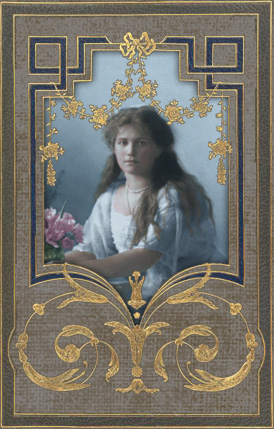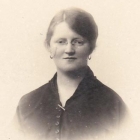People are always telling me that there is no way that you can find your Irish roots because all the records are lost. This article can help your search.







CHAPTER 9
THE ROUGH LIFE OF THE RUSSIAN PEASANTRY
I HAD now been about ten months in Russia, and had seen and learned much regarding the peasants. In most cases their marriages are arranged by the parents, and the ceremony usually takes place before the man is called upon for his military services. Boys and girls, aged respectively sixteen and fourteen years, will be married; the girl then lives with her mother-in-law and helps with the farm work, etc. Housework seems to be cut down to the lowest level. The mother prepares the food and the warm water for the weekly bath, for all peasants take a bath every Saturday night.
A Russian cabin consists of about two rooms; one has a stove, a table, a wooden bench, and a couple of chairs, a lamp, or not, according to their means. Failing a lamp, home-made candles are burned. The inner room is often destitute of furniture.
The father and mother sleep on the top of the stove with as many of the children as can be fitted there. The others take pillows and lie on the floor in their clothing.
The father and mother have supreme power over sons and daughters, daughters-in-law and grand-children, and they are all brought up together. I have counted as many as twenty-one little children all in one cabin, and have been told that there are often more. The Russian peasant receives from his proprietor a strip of land, more or less according to the number of sons in the family. In return he and his family give so many days' work to the proprietor. Boys are, therefore, very much prized; girls are less thought of, though the latter do the hardest part of the work. I have seen a woman yoked to a plough in company with the family cow, and driven by a man. In Russia women mow the rye and grass, and do many things which in this country are considered man's work.
The overcrowding of the cabins is one cause of the frightful mortality amongst Russian children. In all classes taken together some 35 per cent. of the children die. It often leads to many strange diseases of which the doctors know little or nothing, as their studies are carried on in St. Petersburg, or Moscow, where different conditions prevail. But I must here say that as a rule Russian doctors are very kind, and do their best for the poor people; but the country is so under-populated that one doctor has to do duty for three or four villages. He lives in the largest village, and can only visit the others at intervals of a fortnight or so. Should an epidemic break out, the doctor telegraphs to one of the universities or hospitals for someone to aid him. This help is not always forthcoming as the "Lock-outs" in the universities are frequent. The doctor then goes to the stricken village, organises a kind of hospital with such assistance as he can get, and fights the enemy, not always with success. In a village lately there was an out break of some infectious disease, such as diphtheria. The doctor died, and 99 per cent. of the children were swept away.
Children are the great want in Russia; the death-rate comes so close to the birthrate, and the victims are usually those of the poorer classes. From this point of view the war in the East, with the losses of hundreds of thousands, is a terrible calamity for Russia.
For want of population, or, perhaps, I should say, for the want of the proper division of the people, many of Russia's natural advantages are untouched. There are great tracts of country almost untilled; mines in the south almost unworked; trackless forests, where rove wild animals, but which contain vast possibilities of wealth. Russian peasants will not live in solitary farm-houses, and sometimes live forty miles away from their work. In summer they simply shut up the cabin and camp on the farm, driving the beasts before them. In the autumn, when rye and oats are sown, down comes the snow, and all is kept warm; the peasant then returns to his hut for the winter.
The women do most exquisite needlework. Should there be a railway line anywhere near the village, the men are employed for a few hours each day keeping the line clear of snow. Sometimes the younger men go into the nearest town and work in the factories, or in keeping the streets clean, but they live very near starvation in many cases.
There are no shops in a Russian village; each household produces enough for its own wants, with the exception of tea, sugar, paraffin, etc. The people can make their own shoes out of strips or bark plaited together, and put on a wooden sole. Instead of stockings they wear bandages, and they are most skilful in arranging these. During war time even the officers wear these bandages; they say they march better, and should a hole come in the heel they have only to move the bandage a little and it is all right.
Such articles as cannot be produced at home are provided at the annual fair which is held in every village in spring and autumn. Men come round to each village twice a year to buy all the lace, drawn thread-work, etc., which the women have done in the intervals of farm-work. These are taken to St. Petersburg and Moscow, and sold at a large profit. The Empress wished to establish some time ago in London and other centres work depots, which would give the workers a better chance of realising good prices for the products of their toil.



